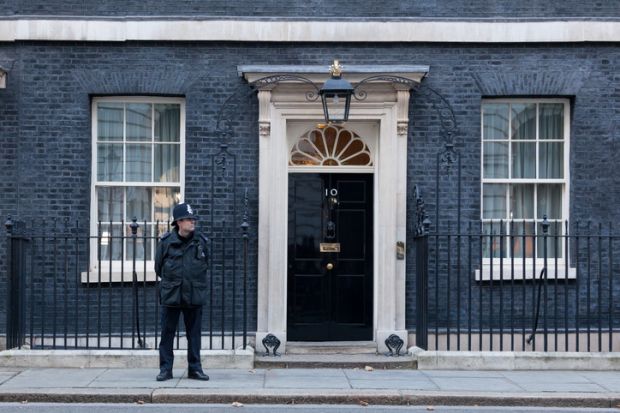Boris Johnson will chair a new science and technology council as part of efforts to turn Britain into a global science superpower, which will also see Sir Patrick Vallance head up a new technology agency in Downing Street.
Under plans unveiled on 21 June, the prime minister will head a new National Science and Technology Council that will provide “strategic direction” in the use of science and technology as the tools to “tackle great societal challenges, level up across the country and boost prosperity around the world”.
The announcement came as the UK government affirmed its ambition to increase public research spending to £22 billion a year from its current level of £14.9 billion – a target that it says it will achieve by 2024-25.
The plan will also see the government’s chief scientific adviser Sir Patrick Vallance lead a new Office for Science and Technology Strategy, which will be located in the Cabinet Office.
Establishing the new ministerial council and science office would help to “realise the limitless possibilities that research and technology has to offer and cement the UK’s place as a global science superpower”, said Mr Johnson.
The new office will support the ministerial council and Sir Patrick – who will also become national technology adviser, in addition to his scientific advice role – will “drive forward the strategy of Whitehall’s science and technology priorities” and “strengthen the government’s insight into cutting-edge research and technologies and work across government to put science and technology at the centre of policy and public services”, Downing Street said.
The new agency “will put science and technology right at the heart of policymaking”, said Sir Patrick.
The creation of a new science unit in 10 Downing Street echoes a suggestion by Dominic Cummings, the prime minister’s former chief aide, at a parliamentary hearing in March that the main ministerial brief for science should be moved out of the Department for Business, Energy and Industrial Strategy and into the heart of government.
The creation of the new Office for Science and Technology Strategy and the ministerial council would raise questions about the level of government interference in science funding, as well as the role of UK Research and Innovation’s role in guiding research spending, said Andy Westwood, professor of government practice at the University of Manchester and a former government special adviser.
With the “PM chairing and providing ‘direction’ and council ‘setting strategy’ – [it] will raise questions about role of UKRI board, as well as cause some nervousness re political decisions”, tweeted Professor Westwood.
The council follows the appointment in April of Lord Browne of Madingley, the former chief executive of BP whose independent review of higher education funding in 2010 led the then-coalition government to increase annual tuition fees to £9,000, as chair of the separate Prime Minister's Council for Science and Technology.




